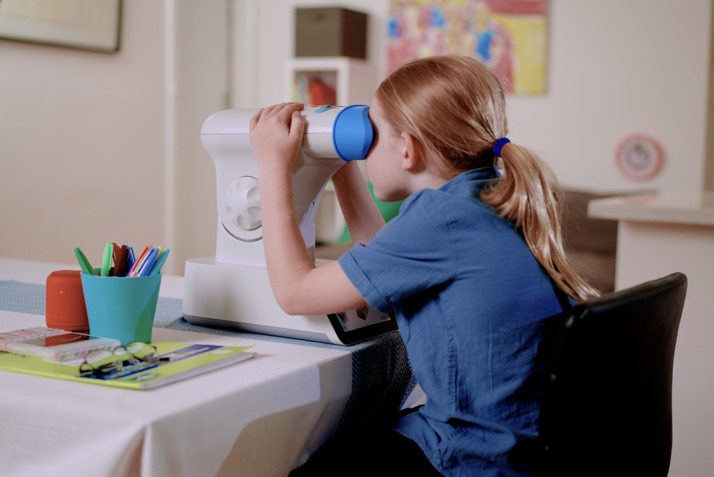China's Ground-breaking Repeated Low-Level Red-Light Therapy (RLRL) for Myopia Gains Global Recognition
2023-07-14
Myopia has emerged as a significant concern for children's eye health worldwide. China's innovative technology known as Repeated Low-Level Red-Light Therapy (RLRL) for myopia is now attracting widespread attention within the international ophthalmology community. This ground-breaking therapy has demonstrated remarkable efficacy in halting the progression of myopia and has been validated through rigorous clinical trials.
Recent data reveals that myopia prevalence has reached an alarming 90% among high school graduates in several East Asian countries, including Japan and China. The onset of myopia is occurring at younger ages, and there is a growing trend towards high myopia, a condition associated with severe ocular complications such as retinal atrophy or even blindness if left untreated. Therefore, timely intervention to control the progression of myopia has become of utmost importance.
Repeated Low-Level Red-Light Therapy (RLRL) involves exposing the retina to low-level red light, effectively slowing down the advancement of myopia. Children undergoing this therapy utilize an RLRL treatment device at home under parental supervision, engaging in two daily sessions lasting 3 minutes each, for a minimum of 5 days per week.
The efficacy and safety of RLRL have been supported by multiple clinical trials. A multi-center randomized controlled clinical trial conducted in Guangzhou, China, concluded in 2020, demonstrating that RLRL achieved an approximate 70% control rate in eye axial elongation and over 80% control rate in refractive progression. Furthermore, when adherence exceeded 75%, the control rate for eye axial elongation reached 76.8%, while the refractive control rate soared to 87.7%. These findings were published in the prestigious international academic journal "Ophthalmology." As of February 8, 2023, a total of 13 studies, including 8 randomized controlled clinical trials, 3 non-randomized clinical trials, and 2 follow-up studies, have been published, consistently reporting the superior efficacy of RLRL in controlling myopia progression compared to existing treatment methods.

Eyerising, a Chinese medical device manufacturing company with 15 years of experience, is the inventor of this technology. The RLRL product has already amassed over one hundred thousand users in China, highlighting its significant impact and wide acceptance within the country. RLRL products have also obtained ISO 13485:2016 production certification and have undergone comprehensive safety testing, including optical safety evaluations conducted by laboratories accredited by the American National Standards Institute (ANSI) and designated by the U.S. Food and Drug Administration (FDA). The product has also obtained CE Class Ⅱa certification for the European Union, enabling its sale and distribution throughout Europe, and recently received TGA certification in Australia.
Currently, researchers in Japan, United States, and United Kingdom are diligently working towards expanding the application of this technology to treat more challenging cases, such as controlling myopia progression in children with extremely high myopia or managing retinal damage associated with severe myopia in adults. Clinicians in Europe, Japan, and Singapore are also developing protocols and guidelines to facilitate the translation of this technology into clinical practice, with a focus on standardizing treatment approaches to maximize efficacy and safety. With these collective endeavours, this technology is poised to undergo further evolution and ultimately emerge as a ground-breaking and globally effective method for myopia control.
Company:Suzhou Eyerising Medical Technology Co., Ltd
Website: www.eyerising.com
Contact Person: Marl
Email: marl@eyerising.com
Telephone: 400-0413-199
City:SuZhou

